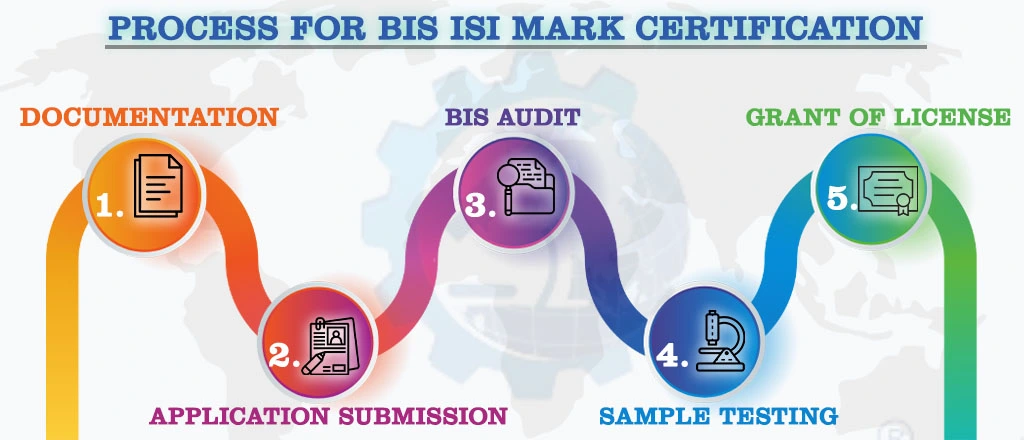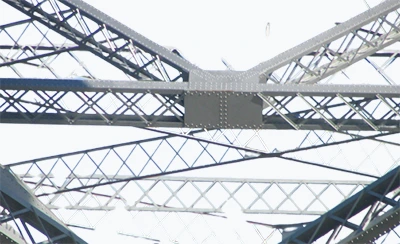BIS CERTIFICATION FOR STRUCTURAL STEEL
IS 3039:1988
In this competitive scenario, it isn't easy to survive in the market without a standard quality and certified product. BIS license may also be required to sell products in the Indian market.
To get BIS certification and produce a standard quality product, the manufacturer must ensure that their product must follow the specified Indian standard.
Let's take a closer look at IS 3039:1988 for Structural steel for the construction of hulls of ships.
This standard specifies the requirements for rolled structural steel plates, sections, flats, and bars used in the construction of ship hulls. Grade I is intended for general use, whereas Grade II and Grade III are intended for special uses. This standard does not apply to rivet bars used in ship construction.
The steel shall be produced using an open hearth, an electric furnace, basic oxygen, or any other process approved by the purchaser. The nitrogen content of steel produced by the basic oxygen process shall not exceed 0.007 percent. Grade I steel can be killed or semi-killed. Grade II steel shall be of the killed type, manufactured with fine grain practice and the use of aluminium or other grain refiners. Grade II steel can also be supplied semi-killed in thicknesses up to and including 35 mm if the steel over 25 mm thickness is normalized. Grade III steel shall be supplied in fully killed conditions, manufactured with fine grain practice, and the use of aluminium and other grain refining elements such as Nb, V, and Ti.
All materials must be free of cracks, surface flaws, segregation, lamination, pipe, and other defects which will be harmful to the service of the material. Surface defects may be removed by chipping or grinding so that the material thickness does not fall below 93 percent of the nominal thickness, but no more than 3 mm at the dressed location.
Tests:
The following test shall be carried out in accordance with the standard.
- Tensile test
- Impact test
- Chemical composition
- Tolerance
Marking:
Every finished product must be marked with the inspecting authority's brand in at least one location by the manufacturer. Unless otherwise agreed, the following information must also be marked on each product:
- Manufacturer’s name or trade-mark
- Grade of steel
- Cast number
- Purchaser’s identification mark, if required by the purchaser.
The standard mark (ISI Mark) may also be applied to the material. Manufacturers must obtain a BIS license from the Bureau of Indian Standards to use a standard mark (ISI Mark). The Bureau grants a license based on a successful assessment of manufacturing infrastructure, production process, and quality control and testing capabilities during a visit to its manufacturing premises.

NOTE:
For Detailed Information about the Procedure for BIS ISI Certification
Visit :
• ISI Mark Certification for Domestic Manufacturers• ISI Mark Certification for Foreign Manufacturers
Conclusion:
If a product falls under the scope of the BIS Conformity Assessment Scheme, All the manufacturers, importers, and foreign entities must obtain BIS ISI Certification. The Bureau may cancel the License if the product fails to meet certification requirements.
Aleph INDIA has been serving the industry as a single-window operator for all product regulatory compliance. We can assist importers or manufacturers in meeting all criteria for importing or selling a product in the Indian market.
International Audits & Participation
Testimonials
BIS REGISTRATION FOR ELECTRONIC & IT PRODUCT
In the era of globalization, world trade is growing rapidly and henceforth, Manufacturing and Import/Export businesses are also growing drastically...View More
BIS CERTIFICATE FOR FOREIGN MANUFACTURER
The Economy of India-the fastest developing economy on the globe with the capabilities that help it matches up with the biggest international...View More
PRODUCT CERTIFICATION SCHEME (ISI MARK) FOR DOMESTIC MANUFACTURERS
Anything a person buys from food to cars, clothes to electronics, branded to unnamed products there is always a question that wanders in one’s...View More
WIRELESS PLANNING AND COORDINATION (WPC)
WPC: Wireless means communication done from one point to another point without the wires and cables. Electromagnetic waves carry the ...View More
BUREAU OF ENERGY EFFICIENCY (BEE) CERTIFICATE
BEE CERTIFICATE: Energy is the future, and its conservation is the way of the bright future. Everyone claims the environment is important...View More
E-WASTE MANAGEMENT
E-waste is one of the world's fastest-growing trash streams. We currently manufacture almost 50 million tones of it each year...View More
Request a call back.
Would you like to speak to one of our Senior Technical advisers over the phone? Just submit your details and we’ll be in touch shortly. You can also email us if you would prefer.
BIS REGISTRATION FOR ELECTRONIC & IT PRODUCT
In the era of globalization, world trade is growing rapidly and henceforth, Manufacturing and Import/Export businesses are also growing drastically...View More
BIS CERTIFICATE FOR FOREIGN MANUFACTURER
The Economy of India-the fastest developing economy on the globe with the capabilities that help it matches up with the biggest international...View More
PRODUCT CERTIFICATION SCHEME (ISI MARK) FOR DOMESTIC MANUFACTURERS
Anything a person buys from food to cars, clothes to electronics, branded to unnamed products there is always a question that wanders in one’s...View More
WIRELESS PLANNING AND COORDINATION (WPC)
WPC: Wireless means communication done from one point to another point without the wires and cables. Electromagnetic waves carry the ...View More
BUREAU OF ENERGY EFFICIENCY (BEE) CERTIFICATE
BEE CERTIFICATE: Energy is the future, and its conservation is the way of the bright future. Everyone claims the environment is important...View More
E-WASTE MANAGEMENT
E-waste is one of the world's fastest-growing trash streams. We currently manufacture almost 50 million tones of it each year...View More
View All Services
Request a call back.
Would you like to speak to one of our Senior Technical advisers over the phone? Just submit your details and we’ll be in touch shortly. You can also email us if you would prefer.






























